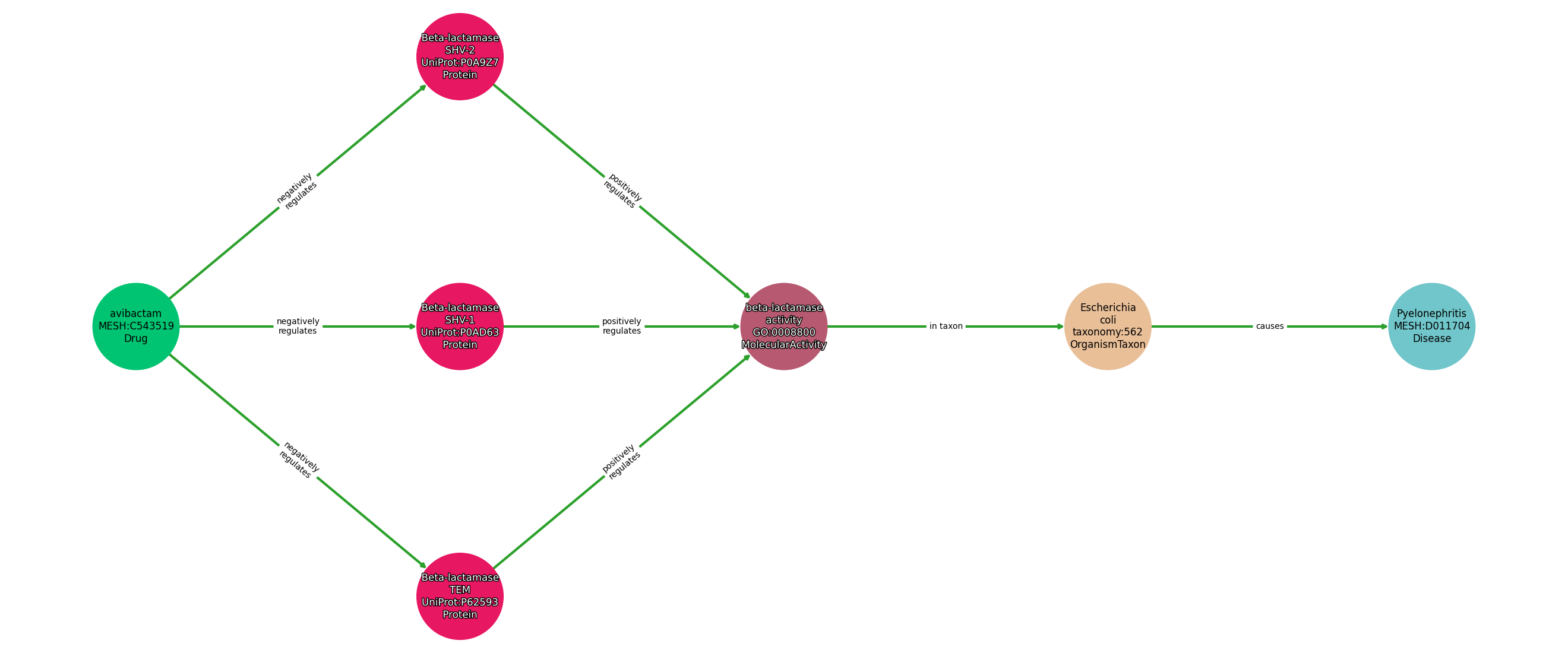Path ID: DB09060_MESH_D011704_1

Concepts
| Identifier | Name | Type |
|---|---|---|
| MESH:C543519 | avibactam | Drug |
| UniProt:P0A9Z7 | Beta-lactamase SHV-2 | Protein |
| UniProt:P0AD63 | Beta-lactamase SHV-1 | Protein |
| UniProt:P62593 | Beta-lactamase TEM | Protein |
| GO:0008800 | beta-lactamase activity | MolecularActivity |
| taxonomy:562 | Escherichia coli | OrganismTaxon |
| MESH:D011704 | Pyelonephritis | Disease |
Relationships
NOTE: predicates are annotated in Biolink Model (v1.3.0)
| Subject | Predicate | Object |
|---|---|---|
| Avibactam | NEGATIVELY REGULATES | Beta-Lactamase Shv-2 |
| Avibactam | NEGATIVELY REGULATES | Beta-Lactamase Shv-1 |
| Avibactam | NEGATIVELY REGULATES | Beta-Lactamase Tem |
| Beta-Lactamase Shv-2 | POSITIVELY REGULATES | Beta-Lactamase Activity |
| Beta-Lactamase Shv-1 | POSITIVELY REGULATES | Beta-Lactamase Activity |
| Beta-Lactamase Tem | POSITIVELY REGULATES | Beta-Lactamase Activity |
| Beta-Lactamase Activity | IN TAXON | Escherichia Coli |
| Escherichia Coli | CAUSES | Pyelonephritis |
Comment: This antibiotic inhbits beta-lactamases, enzymes that break antibiotics and therefore provide resistance to ampicillin and related beta-lacam antibiotics. Avibactam therefore is useful to treat infections caused by bacteria that are multi-resistant to β-lactam antibiotics. The majority of cases of pyelonephritis are caused by E.coli (https://en.wikipedia.org/wiki/Pyelonephritis#Causes), hence using this species in the indication path here.
Reference: